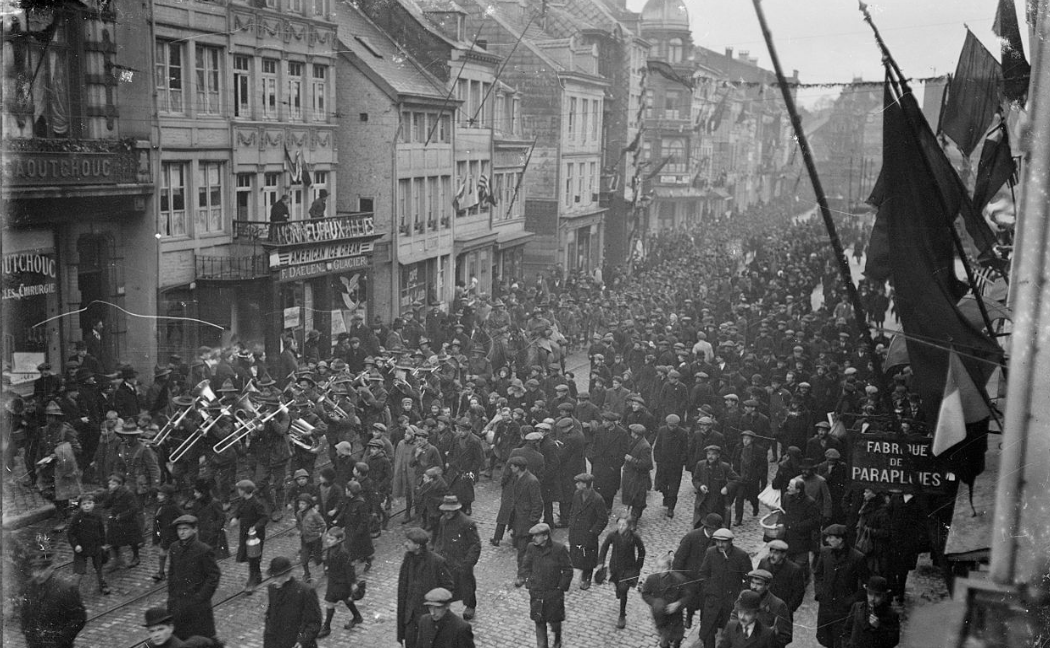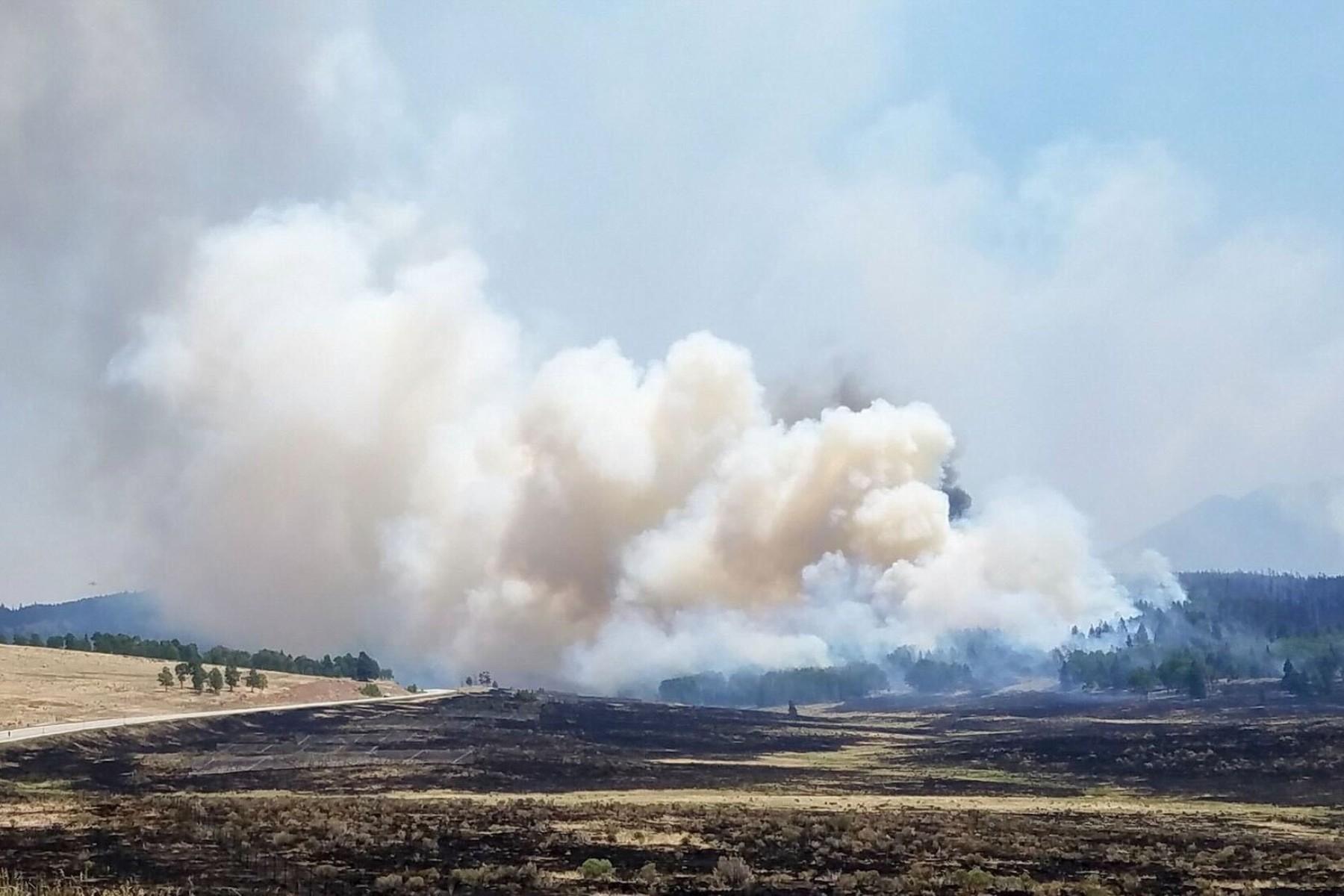

It was supposed to be the “war to end all wars,” but of course, it wasn’t. An estimated 9 million service members and another 7 million civilians died in the bloodbath of World War I. Included in the ranks were many leading artists of the day -- poets, musicians and composers.
To mark the 100th anniversary of the end of World War I, CPR Classical will broadcast Benjamin Britten’s War Requiem at 7 p.m. on Veterans Day this Sunday.
Britten is just one of many composers whose lives and music were touched by World War I. Here's a look at their stories, compiled by CPR Classical's hosts.
Benjamin Britten, War Requiem
Benjamin Britten was born just months before the outbreak of World War I. As a committed pacifist, he left England for the United States just before the start of World War II. It was those roots in pacifism that led him to create his monumental War Requiem.
In the early 1960s, Britten was asked to write a piece for the consecration of the new Coventry Cathedral in England. The building replaced the original 14th century structure, which had been destroyed in a WWII bombing raid. The commissioners gave Britten complete freedom to compose what he thought was best.
Britten came up with the idea to write a setting of the Requiem Mass. He kept the traditional Latin text but added poetry written in the trenches of World War I by English foot soldier Wilfred Owen. The traditional Latin text is performed by a soprano soloist, large chorus and large orchestra. The intimate Owen poetry is handled by men soloists -- tenor and baritone -- and a separate chamber orchestra. An offstage children’s chorus serves as angelic voices from afar. The whole is so much more than the sum of its parts.
For more on Britten’s War Requiem, click the audio link above to hear my recent interview with Duain Wolfe. He founded the Colorado Symphony Chorus, which recently performed the piece with the Colorado Symphony. -- David Ginder
George Butterworth, 'The Banks of Green Willow'
War steals the greatest treasures of the living. It did when English composer George Butterworth died at the age of 31 in 1916 from sniper fire during the Battle of Somme.
Butterworth left behind some of the greatest unrealized promise of all composers lost to war. His mentor and friend Ralph Vaughan Williams helped stir in him a deep love of English folk music. Butterworth accompanied Vaughan Williams on his famous expeditions in search of disappearing folk tunes from the English countryside. He captured by phonograph simple country folk singing “The Banks of Green Willow” in Sussex in 1907, which became the basis for his most famous work of the same name. Ironically, its expressly idyllic tenor and beauty defies the violent means by which he lost his life. -- Monika Vischer
Enrique Granados, 'Goyescas'
Enrique Granados' most famous work was the life and death of him. Known for his “Goyescas” (inspired by Spanish Romantic paintings of Francisco Goya), the 48-year-old composer and pianist traveled to New York to see the newly staged opera version of the work at the Met. He didn’t much like the performance, but was paid well.
Owing to the unstable global economy during World War I, he insisted on payment in gold. On his way back home to Europe, his ship was torpedoed by the Germans in the English Channel. Many passengers were rescued but Granados -- his gold tucked securely in his belt -- sank immediately to the bottom in an attempt to save his wife on March 24, 1916. Both died, leaving behind six children. -- Monika Vischer
E. J. Moeran, Symphony in G Minor
Ernest John Moeran, known as “Jack” to his friends, is remembered today mostly for writing adaptations of folk songs, a popular pastime among English composers at the turn of the 20th century. When war broke out, Moeran enlisted and was sent to France. There he was injured by shrapnel which caused life-long symptoms similar to inebriation, including an unsteady gait and slurred speech.
After the war he wrote his only symphony and filled it with the pastoral folk music he loved so much. But his biographer, Geoffrey Self, believed that the symphony was in fact Moeran’s “War Requiem,” with the second movement in particular mourning the losses of the war. The composer died of a brain hemorrhage after the Second World War, which some scholars believe may have been an end result of his earlier injuries. -- Marilyn Cooley
Gustav Holst, 'The Planets'
Gustav von Holst was in his forties when the First World War broke out. He was declared unfit for service, but in the final year of the conflict, he got a chance to provide musical support to overseas troops. There was a condition: He had to remove the German-sounding “von” from his name.
Holst began writing his famous suite “The Planets” in 1914, the year war broke out. The piece is astrologically -- rather than astronomically -- inspired. In the opening section of the suite, “Mars, The Bringer of War,” there’s a truly visceral sense of horror; what must have seemed like the end of the world to those who experienced The Great War. -- Marilyn Cooley
Ralph Vaughan Williams, 'The Lark Ascending'
Ralph Vaughan Williams wrote “The Lark Ascending” in 1914, but the premiere had to wait until after the war. That same year, he enlisted as a private in the British Army. He was in his early 40s, so he claimed to be a few years younger to meet the requirements.
Back home after the war, Vaughan Williams came back to this piece and made some revisions. It finally premiered in London in the summer of 1921. It is one of Great Britain's most beloved pieces and a quintessential example of the ethereal, heavenly strings Vaughan Williams is most remembered for. -- Matt Weesner
Maurice Ravel, Concerto for the Left Hand
Maurice Ravel wanted to serve in the French military, but was turned down because he was underweight. He found a way in, though. He joined a medical team and drove trucks and ambulances during the war.
Concert pianist Paul Wittgenstein also served. While fighting for Austria, he was shot in his right elbow, and lost his arm. He didn’t let that end his music career, though. He paid some of the world’s leading composers to write concertos to be performed with one hand. In 1929, he commissioned Ravel to write the Piano Concerto for the Left Hand. -- Matt Weesner
Maurice Ravel, 'Le Tombeau de Couperin'
Here’s one more that grew from Ravel’s experiences in World War I. Saddened by death and brutality he witnessed, and his mother’s passing at the end of the war, Ravel composed this tribute to one of France’s greatest composers, Francois Couperin (1668-1733). Ravel named each of the six movements after artist friends who died in the war.
There is nothing somber about the sound of the piece, which became a point of criticism for Ravel, who responded: "The dead are sad enough, in their eternal silence." -- Karla Walker
Percy Grainger, 'The Warriors'
Percy Grainger was best known for his interpretations of folk tunes like “Irish Tune from County Derry (Danny Boy).” But just before the war he began writing an odd, avant-garde ballet called “The Warriors.” Described as “music to an imaginary ballet,” he composed it between 1913 and 1916. The warriors in the ballet don’t actually fight. Grainger described the imagined war setting this way: "Ghosts of male and female warrior types of all times and places" have gathered "for an orgy of war-like dances, processions, and merry-makings broken, or accompanied, by amorous interludes."
With the onset of World War I, Grainger moved to the United States and became a citizen in 1918. While he didn’t fight in the war, Grainger did serve in the U.S. Army from 1917 to 1919. -- Bob Lafley
Igor Stravinsky, 'The Soldier’s Tale'
When World War I broke out, Igor Stravinsky shuttled between France, Russia and Switzerland, seeking a safe haven during the war. He received financial assistance from a Swiss philanthropist while writing “The Soldier’s Tale.”
The piece puts an orchestra of seven on stage. The rhythmically enunciating narrator is simultaneously the commentator of the tale of the runaway soldier, the princess and the ultimately triumphant devil - - who has the first percussion solo in music history. -- Bob Lafley









